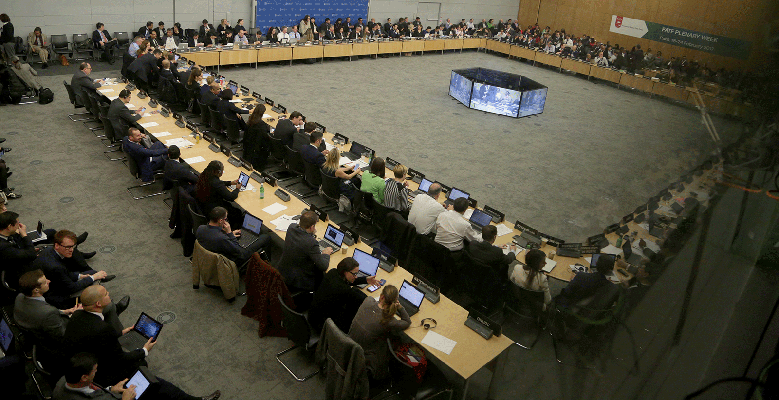ISLAMABAD, Pakistan: The 35-member Financial Action Task Force (FATF) – an international body aims at to combat money laundering and terror financing – is pondering over the proposal of re-include Pakistan in FATF’s grey list over non-compliance of its set standards, a move that Pakistan says is “politically motivated” with real objective behind to hamper its economic progress.
The six-day FATF meeting – which began in Paris on February 18 would continue till February 23 – is deliberating upon a motion moved by the United States and United Kingdom to include Pakistan in FATF’s global terrorist-financing watchlist. Placing any Country in grey list means that the Country in questions falls under “High-risk and other monitored jurisdictions category”. 
Though having done enough in all aspects especially militarily and financially in the US-led war on terror and offered unprecedented human sacrifices which are well over 70,000, Pakistan is still looked at with suspicious eyes around the World and blamed for backing various terror outfits.
With same justifications and allegations, the US and UK moved to the FATF to re-enter in FATF’s grey list over its alleged failure to initiate concrete measures to halt money laundering and terrorist financing.
Except China, according to reports, all FATF members are likely to endorse the US’s anti-Pakistan motion which may eventually have serious repercussions for Pakistan’s economy.
Even if not directly as FATF doesn’t have the authority to impose economic sanctions on any Country, its recommendations and listing Pakistan in the grey list will certainly cause Islamabad to suffer economically in the future.
Once added in FATF’s grey list, Pakistan may return to where it was years ago. In recent years, Pakistan endeavored to improve its image Worldwide with multi-faceted steps but it may all go in vein if the US succeeds in its objectives.
Likewise, Pakistan’s economy will surely suffer massively as its financial dealings will go under tighter scrutiny; already low foreign investment to Pakistan may further dip; its rating may be downgraded by global credit ratings agencies; its current account deficit could further be widened; it may face hurdles to secure foreign loans; and the last if not the least, International banks Such as Standard Chartered, Citibank and Deutsche Bank may shut their businesses in Pakistan.
It is worth mentioning here that Pakistan had already been listed in FATF’s grey list in February 2012 after ”strategic deficiencies” were found in Pakistan’s Anti Money Laundering (AML) and Counter Financing Terrorism (CFT) regime. But later Pakistan made strenuous efforts, and introduced new rules and guidelines on CFT/AML, made legislation on money laundering, established an operationally independent and administrative Financial Monitoring Unit (FMU) under the AML law. Eventually Pakistan was de-listed from FATF’s list in June 2015.
It’s also important to mention here that FATF was established in 1989 on the initiative of the G-7 with the primary aim to set standards to combat money laundering. But its mandate was expanded in 2001 to include countering terrorist financing.
Currently, the FATF comprises 35 member Countries including the United States, United Kingdom, Argentina, Australia, Austria, Belgium, Brazil, Canada, China, Denmark, Finland, France, Germany, Greece, Hong Kong, China, Iceland, India, Ireland, Italy, Japan, Republic of Korea, Luxembourg, Malaysia, Mexico, Netherlands, Kingdom of New Zealand, Norway, Portugal, Russian Federation, Singapore, South Africa, Spain, Sweden and Switzerland.
The FATF also comprises two regional organisations including Gulf Co-operation Council and European Commission while it has two observers including Saudi Arabia and Israel. Pakistan is not the member of FATF.
Talking to media on February 15, 2018 in Islamabad, the Foreign Office Spokesperson Dr Muhammad Faisal said that Pakistan had undertaken comprehensive enforcement actions to address FATF’s concerns including the implementation of UN Security Council resolution 1267 which recommended imposing sanctions on some entities i.e. Lashkar-e-Taiba (LeT), Jamaatud Dawa (JuD) and the Falah-i-Insaniat Foundation (FIF), and in this regard Islamabad also submitted a report to the Asia Pacific Group (APG) on January 6, 2018.
“The real aim of this politically motivated move is to hamper Pakistan’s economic progress,” Dr Faisal said with reference to the US move against Pakistan in FATF meeting.
